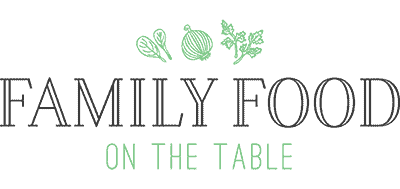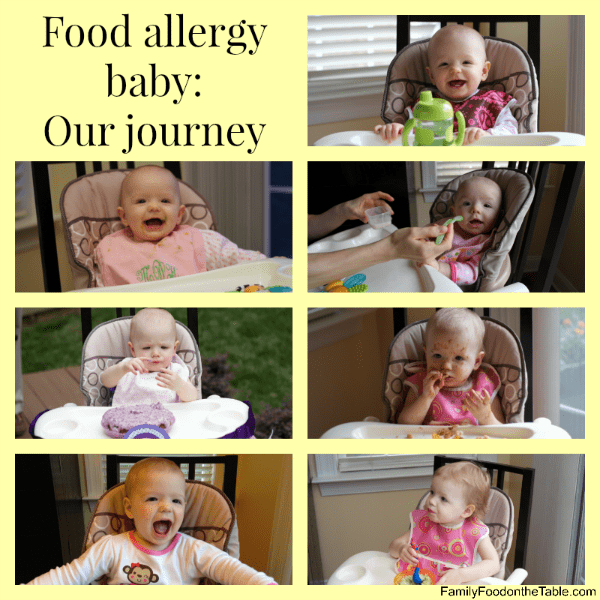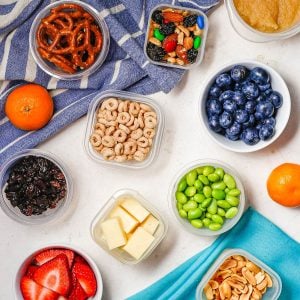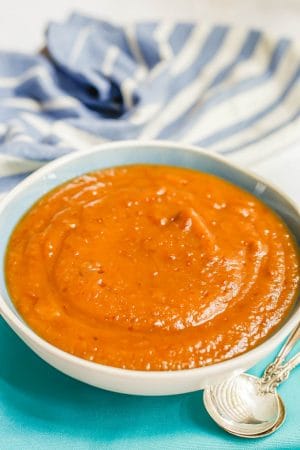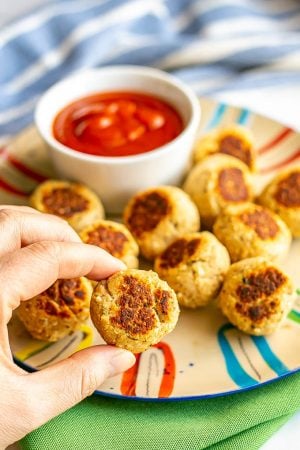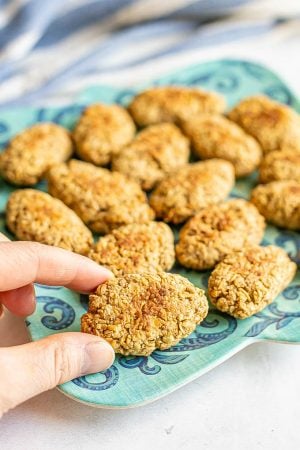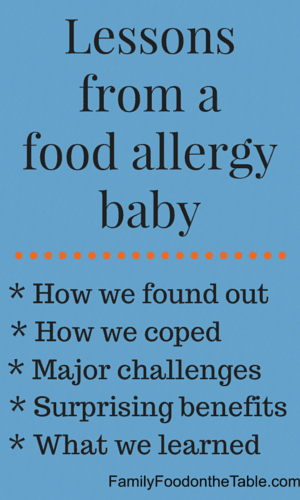 So today is J’s birthday - my baby is 2! how is that possible?! - but I’m actually going to talk about M. Poor second child, so neglected. J, I made you chocolate cake, so I think you’ll forgive me.
So today is J’s birthday - my baby is 2! how is that possible?! - but I’m actually going to talk about M. Poor second child, so neglected. J, I made you chocolate cake, so I think you’ll forgive me.
My daughter M was allergic to milk. Which means cow’s milk. One of many things I quickly learned when we found out. It’s sort-of a whirlwind of figuring out what to do and where to go and how to cope. It can be a bit intimidating and overwhelming, particularly because it’s so serious. You immediately have to pay very close attention to every single thing your child eats or is offered to eat. I read labels before she was diagnosed, but not like I suddenly needed to.
She was 1 when we had her tested and got the news. Three years later, at age 4, she has outgrown her allergy. I am so thankful and so relieved not to have to worry about her accidentally eating something with milk - at school, at a party, even at home if we mix up her milk with her brother’s milk.
But, and I know this sounds strange, I do miss those days a little. I’ll explain soon, but I also want to offer some advice and resources for any of you who might be grappling with a food allergy with your baby or child. Specifically…
- How did we know or suspect she was allergic? This was everyone’s first question.
- What did we do differently to cope with the allergy? How did we handle it? What was the day-to-day like?
- What were the major struggles?
- And maybe you wouldn’t think to ask it, but I’d also like to share the positives of having a child with a food allergy.
For those of you with milk allergy babies or kids, I am planning a separate post about the products we tried with M - some we liked, some we didn’t. Coming soon.
And I of course have to make the disclaimer that I am NOT a medical professional. You should always talk to your doctor about your child’s health and treatment. This is intended only as support and perspective from a mom who’s been there.
How did we find out?
OK, so first, how did we know she had an allergy? I was fortunate in that M never had a problem while I nursed her. I ate milk and cheese and lots of yogurt that first year of her life while she was breast feeding and she never had a problem with my breast milk. She did have eczema as a baby, which I now know means she was at a higher risk for an allergy. And when we started introducing solids at 6 months, she would sometimes get hives around her mouth. It didn’t seem to be linked to any specific food — though I thought eggs might be a culprit at one point — and we all figured it was a skin reaction rather than a food reaction. She was a messy eater and I thought all of that food smeared on her face was making her sensitive skin break out. She had no other symptoms.
I stubbornly nursed exclusively for a year and as soon as she turned 1, I was ready to wean her. Breast feeding is so hard! This mama was done. Plus, I had a girls beach trip coming up - my first time away from her since she’d been born - so I had to get her switched off of me and onto all bottles (and we used the opportunity to switch her to cups so we could say bye-bye to bottles).
I planned to start the switch with the milk she got at school in the mornings. From there I planned to drop one feeding at a time, switching it over to a cup, until we were on all cups and all milk.


So the first day after she turned 1, I mixed a tiny bit of whole milk in with the breast milk and sent her off with her cup. I wanted to slowly introduce the taste to her so she wouldn’t balk and we could transition gradually. I had a very specific plan in mind. And we know what happens to the best laid plans… So her teacher called that morning and said that she was fine, but had thrown up after drinking her milk. I thought that was strange. But it could have been a fluke. She was fine otherwise.
The next day, I mixed the same amount of milk, just a splash really, into the cup with her breast milk and off she went. Another call. Threw up again, right after having her milk.
So operation weaning halted immediately. We had her 1-year-old visit with the pediatrician later that week and our doctor agreed that it was suspicious. She referred us to a pediatric allergy doctor and I got her in to be seen right away. (Don’t forget, I had a deadline called a beach trip coming up and she needed to be off the boob!)
The doctor did a skin test of all the most common food allergies (there are 8: milk, soy, egg, wheat, peanut, tree nut, fish and shellfish) and sure enough, she was allergic to milk. She showed no allergy to eggs after all and had a possible slight/mild allergy to wheat. We had never noticed any problems giving her wheat, so the doctor said to ignore that and to let her keep having it.
But milk. No milk. No cow’s milk, no cheese, no yogurt, no butter. Once you think about it, milk is in a lot of products and those products are in a lot of food.
I was fortunate that I had already been making 100% of her baby food so I knew I could continue to prepare her foods, but it was unsettling all the same. All the foods and recipes I couldn’t make her as planned. All the snacks and meals she couldn’t share in at school, at parties, at restaurants down the road. She didn’t know any better, but I mourned a bit for her.
And then I got to reading. My day-job is reading and digesting health information for doctors, dietitans and other health care professionals, so I felt more than comfortable learning my way around this world. But the literature is only so helpful. At some point, you have to put down the book, turn off the computer and face the reality of a hungry child in a high chair who can’t have a lot of foods.
How did we cope?
What did we do once we found out? I started reading labels carefully. I found dairy-free recipes. I made regular recipes dairy-free with some basic substitutions. I searched the grocery stores in our area and discovered the milk product substitutes she could have that I felt comfortable with. (More on those milk allergy specifics coming soon.) I limped along a bit at first, but it wasn’t long until I felt like I had my head around this thing and could comfortably move forward and make plenty of delicious foods for her. You will, too. You’ll go from being blindsided by this diagnosis to feeling like an expert. You’ll get more and more comfortable with how to handle the ins and outs of navigating the food allergy world.
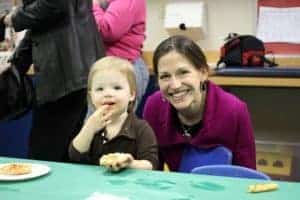
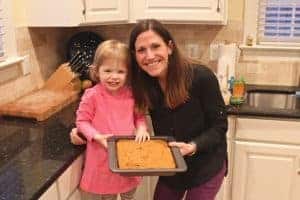
As for resources, I cobbled together information from here, there and everywhere. I started with the literature from the allergy doctor, browsed the online support groups they recommended and started Googling all about milk allergies. Investigate your specific food allergy to learn what to look for on labels (and where on labels to look), as well as find recipes that exclude the food your child can't have. Once you tackle a few recipes and get some practice, you'll be able to find out how the substitutions are done so that you can tweak other recipes and make them safe for your child.
Also, be sure to convey your new expertise to everyone who cares for your child. Family members, grandparents, babysitters, teachers, camps and activities - make sure everyone has it on file that your child has a food allergy. If your child will be eating away from home or without you there, make sure the adult in charge understands what the food allergy encompasses and that nothing is offered that you haven't approved.
The challenges we faced
What were the downsides of having a food allergy baby? Well, the worry, for one. I can’t tell you how many times I had to explain what a milk allergy was. “Oh really? Yogurt? She can’t have regular yogurt?” Or, “What do you mean butter isn’t OK? I thought she was allergic to milk.” It’s confusing, particularly for people who aren’t as familiar as us moms in the trenches get to be. But those misperceptions, those misunderstandings can put your child’s life in danger. That’s scary.
M went - and goes - to part-day preschool in the mornings, while I’m working my full-time job. Everyone in the program sends in their child’s lunch, but usually the kids get a common snack. With her allergy, I had to send hers in, and luckily the school was very well-informed about food allergies. Their rule for food was that it came from me or she didn’t have it. In her most recent 3-year-old class, the teacher was particularly well-read about allergies and I trusted her to check labels and check with companies about anything she might offer as a treat when they played games like bingo and used food as the pieces. But anytime another parent brought in cupcakes or cookies for a kid’s birthday, I would get a heads-up and send in something for M. (I kept her favorite cakes and cupcakes wrapped individually in the freezer so I could pull something out at a moment’s notice.)

Still, you worry that they will try a bite of a friend’s sandwich or sneak a nibble of a treat when the teacher isn’t looking — particularly when they are very young and can’t understand why they don’t get to have the same thing as everyone else. You worry that someone at a party will hand down a cube of cheese to the cute little girl eyeing the food plate. Or that the well-meaning neighbor will pass her a bite of cookie when I’m in the other room.
A million scenarios will pass through your head. A million ways this could go horribly wrong. I don’t have any suggestions on how to quiet those voices. They would creep up on me, too. But being educated yourself and being prepared for any situation is the best you can do. When we would go to a group party, I would try and spread the word that M has an allergy and should not be given something without me checking it. I always made sure our close friends, family and babysitters understood exactly what an allergy meant. I would demonstrate how to use the EpiPen to scare them into not offering anything other than what I set out for her to have while I was gone. Better safe than sorry quickly becomes the name of the game.
And when she was old enough, I explained to M on multiple occasions that some foods could make her sick, so she shouldn’t ever eat something that someone else offers unless she asked me (or her teacher) first. She’s a natural rule-follower so I trusted that she would be able to handle this, but some kids might not be able to take that on. So everyone else around them needs to be prepped, too.

I’m happy and feel very fortunate to be able to say that we never had an incident. Or even a scare. We never needed the EpiPen that I always carried with me. (Side note: We always had to get 2 double prescriptions so we could share the love. I had one in my purse - with me at all times, one at home for babysitters and others if I wasn’t there, one at school, as required, and one with my mom, so she’d be OK to keep her at the last minute without the worry of one more thing to bring. Four EpiPens. Not cheap.) But worth every penny knowing we were covered. And luckily, we never needed to use it.
Which brings me to…
The surprising benefits of having a child with a food allergy
Really, there are some. You just need to look at it in a certain way.
- I knew exactly what her allergy was. They tested all the biggies when she went in at 1 year old, so I knew she wasn’t allergic to peanuts. I was more than happy to make her a peanut butter toast the next day, knowing she was fine. I’ve been able to comfortably introduce shellfish without a second thought. And on a related side-note, I also was happy to let her younger brother have peanut butter as a baby because I had that EpiPen handy, just in case. It’s a little reassurance.
- I had to send her snacks to school every day. This might seem like more of a burden, but there were days when the other kids had Fruit Loops or Cheetos and I was so thankful to be able to keep that junk away from her. Particularly when she was under 2. I had worked so hard to eat well when I was pregnant, when I was nursing and then to make her baby food and to keep the processed junk away when she was itty bitty, so I was somewhat relieved that I could keep doing that because of the allergy.
- Her preschool requires any classroom treats to be store-bought and packaged. It can’t be homemade. This is to protect kids with a peanut allergy and I, of course, am super sympathetic to that. However, being a firm believer that homemade is always SO much better and healthier than anything packaged, it’s a bit tough to swallow. Fortunately, having an allergy meant that M wasn’t allowed the store-bought junk so I could send her in a homemade treat. I was more than happy to make her cupcakes and cookies to have - and she gobbled them up every time. Win-win.
- I think M has a more developed palate - can you say that about a 4-year-old? - because of her allergy. She has eaten goat cheese and goat’s milk yogurt since she was 1 and she loves them, despite those rather strong flavors. She still prefers those to regular yogurt and cheese. I figured she’d be thrilled to be able to eat string cheese, but no, she’d rather have “her” cheese, she says. I’m hoping this will serve her well and be a base for more experimental eating down the road.
-

M grocery shopping with her little cart Finally, the fact that she had a food allergy made it really easy to say no to junk food and candy. She’s not a child to demand or usually even ask for something at the grocery store, but on occasion, it would come up at the grocery store and it was almost always something she wasn’t allowed to eat. No fighting, no hurt feelings, just cold hard medical facts saying she wasn’t allowed to have that food (or food-like substance, as may have been the case). Now she is 4 and no longer allergic, but also old enough to know and understand that “Mama doesn’t buy that stuff,” as I’ve pointed out a couple of times. She doesn’t even ask for it. She knows she may get lucky at school with a fun snack or a candy bingo game or a special treat, but I don’t have to have that discussion or negotiate or bribe. Junk food and candy is an OK-now-and-then-fun-treat she might have at parties or special occasions at school, but it’s something that I don’t buy for our family. She gets it. And I love that.
It’s hard. I won’t lie about that. But it’s possible to survive and even thrive with the unknowns, the restrictions, the concerns.
Wherever you are on that journey — newcomer feeling totally in the dark and scared, mid-stride food allergy mom feeling comfortable with the rig-a-ma-role, or seasoned vet who’s been living it for years — we all have the same worries, the same fears, the same day-to-day challenges. But I hope you’ll feel not alone, not immobilized, not swamped by the reality of caring for a baby or child with a food allergy.
I hope that all of you have children who outgrow their allergies. Knowing that’s not realistic, I hope you find the resources and support you need to get by. Please let me know if you have questions that I might be able to help with. It’s a journey, not always easy, but completely manageable. Good luck!
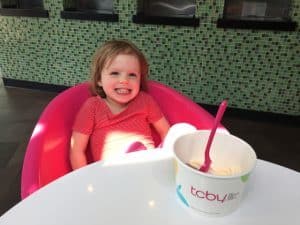
** Does your child have a food allergy? How have you coped? What have been your main challenges?
